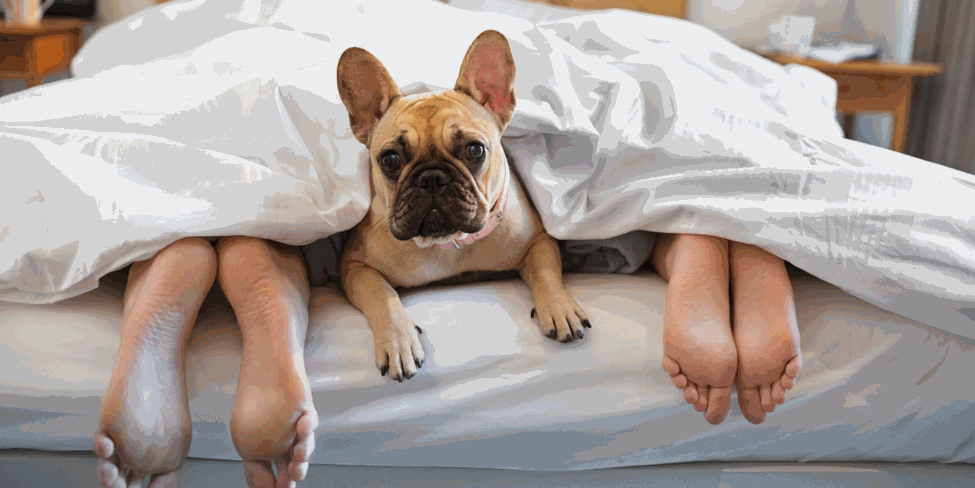Sleep: You’re Doing It Wrong
MARCH 17, 2017 – 5:00 AM | by Paula Spencer Scott | Parade.com
 Your body wants to sleep. It really does. To work, every system in your body needs z’s.
Your body wants to sleep. It really does. To work, every system in your body needs z’s.
Sounds simple, but sometimes our expectations and habits get in the way of the very thing we need most, says Nancy Foldvary-Schaefer, director of the Cleveland Clinic Sleep Disorders Center. We have trouble falling asleep, staying asleep or getting refreshing sleep, she says. In short, we’re doing it wrong—and we could be taking years off our lives.
The good news: “Sleep is a skill. It’s not like eye color, which you can’t do anything about. If you’re not happy with your sleep, it can be improved,” says W. Chris Winter, M.D., author of The Sleep Solution (available April 4).
Here are just a few of the ways you might be getting it wrong—and how you can fix it.
You’re stressing too much
Whether you’re obsessing over tomorrow’s to-do list or ruminating about a tense email exchange, anxiety is a major sleep killer. Treat it like other stimulating activities like reading, binge-watching and binge-eating, and do everything you can to banish it from your bed.
“Keep a worry journal that you can focus on by day—then literally close the book on those thoughts,” suggests Foldvary-Schaefer.
Only 16% of Parade readers say they get “plenty of sleep”
Source: 2017 Parade/Cleveland Clinic survey
You’re being random
Our bodies don’t do random well. To maximize sleep, start by picking your desired wake-up time and planning a bedtime routine backward from there.
How far back to count? That’s where it gets tricky. Adults need seven to nine hours of sleep—a pretty wide range. Some of us are larks, some night owls. Most of us need less as we age. But you need about the same amount most nights. If you’re lying awake, you might be starting too early or napping too much by day.
Like kids, we all do better when routines prompt our bodies for what to expect: consistent mealtimes, consistent exercise and then a consistent wind-down and tuck-in time. Pick whatever plan works for you (like brushing teeth, meditating, then snuggling). Just do it consistently.
You’re not comfy enough
What experts have dubbed “sleep hygiene” does matter: Keep the room cool, use your bed only for sleep and sex, limit afternoon caffeine and don’t eat much before bed.
But above all, make sure that your sleeping quarters are inviting. Ask yourself:
- Do I like my mattress and pillow? Firm or soft, all that matters is that you like them and that they don’t cause pain or stiffness, which can wake you.
- Am I comfortable with my sheets and blankets? Same idea: Pick the hay that makes you want to hit it.
- What am I wearing? There’s no right or wrong, but wearing less lets you more easily regulate your temperature. Loose clothing in fabrics like cotton, silk and bamboo—or sleeping in the buff—will keep you coolest.
Your dog is disturbing the peace
Here’s the tough part: As much as we love our pets, they really have no business in bed with us. A recent study of pet owners found that 63 percent of respondents who shared a bed with pets more than four nights a week had poor sleep quality. You may not feel like they’re disturbing you, but remember that dogs have different sleep-wake cycles from humans and don’t tend to zonk out for eight hours straight like we do.
Don’t believe it? Run this test: Wear a tracking device (like a Fitbit) while sleeping with your pooch for two weeks. Then sleep solo for two weeks. Compare the amounts of actual sleep you got.
You’re letting in too much light
If sleep specialists were polled on the one key word for a good night’s sleep, it would probably be dark. (Let’s hope you’re not reading this on your phone in bed.) Get blackout shades or heavy curtains so that you’re not waking up at the crack of dawn (unless you choose to).
Banish other light sources too: Phones, tablets, laptops, TVs—even some bright clocks and night-lights—really do interfere with your body clock and keep you up. The short-wavelength blue light, also found in morning light, messes with your melatonin, the hormone that regulates sleep and wake cycles. And it’s a bigger problem than ever: A 2017 study found that after subjects followed natural light/dark rhythms on a camping trip, their levels of melatonin reset by as much as two hours, so they felt sleepy earlier, even after they returned to civilization.
47% of readers watch TV just before bed.
Source: 2015 Parade survey
One piece of good news for screen addicts: Swedish researchers recently discovered that you can offset some of the ill effects of looking at digital devices late at night by getting plenty of daylight while the sun’s up, whether by spending time outside or keeping your blinds open.
You’re overthinking it
We’ve all lain awake worrying that we can’t get to sleep—a problem that can build on itself. Try to quell the panic by reminding yourself that simply lying in bed is good for you too. “Sleep is awesome, but resting is not wasted time,” Winter says.
Think dull, pleasant thoughts—tour every hole at your favorite golf course or mentally whip up a pie. Use progressive muscle relaxation to clench and stretch every body part, up from your toes.
If all else fails and you can’t bear the thought of lying awake, it won’t hurt you to get up for a while and do something else. Iron. Read. You will feel sleepy eventually.
Whatever you do, don’t try to sleep. “You don’t try to be hungry,” Winter points out. “When you take the expectation of sleep away, it tends to come in a hurry.”




